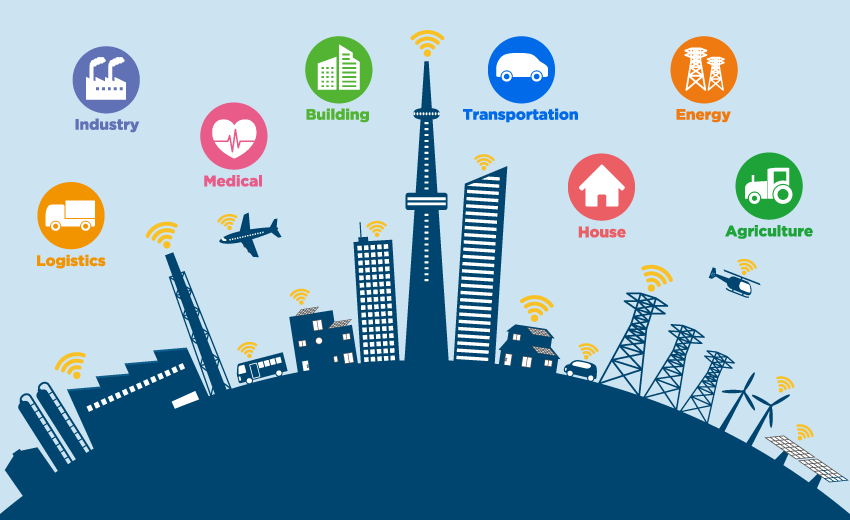Introduction
Smart cities are no longer just a futuristic concept—they’re becoming a reality across the globe. By integrating advanced technologies like Artificial Intelligence (AI) and the Internet of Things (IoT), cities can operate more efficiently, sustainably, and conveniently. But how exactly do AI and IoT work together to achieve this? Let’s dive in and explore.
Overview of Smart Cities
What Defines a Smart City?
A smart city leverages technology to improve the quality of life for its citizens. From efficient transportation systems to optimized energy use, smart cities are built on data-driven solutions.
Importance of Integrating Technology into Urban Infrastructure
As populations in urban areas grow, traditional infrastructure struggles to keep up. Integrating AI and IoT can address challenges such as traffic congestion, pollution, and waste management, ensuring cities remain livable and sustainable.
The Role of AI and IoT
Defining AI and IoT
AI refers to machines’ ability to mimic human intelligence, including problem-solving, learning, and decision-making. IoT, on the other hand, connects physical devices to the internet, allowing them to collect and share data.
Why These Technologies Are Pivotal for Smarter Cities
When combined, AI and IoT create a dynamic duo. IoT collects massive amounts of real-time data, and AI processes and analyzes it, providing actionable insights to improve urban living.
How AI and IoT Complement Each Other
AI Enhances IoT Capabilities
AI makes IoT smarter by analyzing vast amounts of data and predicting future trends. For instance, machine learning algorithms can optimize traffic signals based on real-time congestion levels.
IoT Provides Real-Time Data for AI
IoT devices act as the eyes and ears of AI systems. Sensors in smart cities monitor everything from air quality to water usage, feeding valuable data into AI algorithms for improved decision-making.
Key Applications in Smarter Cities
Intelligent Transportation Systems
AI and IoT in Traffic Management
Smart traffic lights powered by AI can reduce congestion by analyzing traffic flow in real time. IoT sensors detect vehicle density and adjust signals accordingly.
Smart Parking Solutions
IoT-enabled parking sensors guide drivers to available spaces, reducing time spent searching for parking and cutting down emissions.
Sustainable Energy Management
Optimizing Energy Consumption
Smart grids use IoT to monitor energy use and AI to predict demand patterns, ensuring energy is distributed efficiently.
Integrating Renewable Energy Sources
AI helps manage renewable energy sources like solar and wind by predicting weather patterns and adjusting power distribution accordingly.
Waste Management Solutions
AI-Driven Waste Collection Schedules
AI analyzes waste patterns to create optimized collection routes, saving time and resources.
IoT-Enabled Smart Bins
Smart bins equipped with IoT sensors alert waste management teams when they’re full, ensuring timely collection.
Public Safety and Emergency Response
AI-Powered Surveillance Systems
AI can analyze CCTV footage to identify suspicious activities, enhancing city security.
Real-Time Emergency Alerts Using IoT
IoT devices send instant alerts during emergencies like fires or floods, enabling quicker response times.
Healthcare Advancements
Remote Patient Monitoring
IoT wearables track patients’ vitals, while AI analyzes the data to alert healthcare providers of potential issues.
AI in Predictive Healthcare
AI predicts disease outbreaks based on data from IoT sensors monitoring environmental factors like temperature and humidity.
Challenges in Implementing AI and IoT in Smart Cities
Data Privacy and Security Concerns
Risks of Data Breaches
The interconnected nature of AI and IoT makes them vulnerable to cyberattacks, risking sensitive data.
Steps to Enhance Cybersecurity
Encryption, secure networks, and regular software updates can mitigate these risks.
Infrastructure and Integration Issues
Legacy Systems Versus Modern Technology
Older infrastructure often struggles to accommodate new technologies, requiring costly upgrades.
Costs of Upgrading Infrastructure
Smart city projects demand significant investment, which can be a barrier for some governments.
Ethical Considerations
Balancing Efficiency with Citizen Rights
Smart cities must ensure that technology benefits everyone without infringing on privacy or freedoms.
Ethical Use of AI Decision-Making
Transparent AI systems are critical to maintain public trust and accountability.
The Future of AI and IoT in Urban Development
Innovations on the Horizon
From autonomous vehicles to smart grids, the future of smart cities is filled with exciting possibilities.
Global Examples of Smarter Cities
Cities like Singapore, Barcelona, and Dubai are leading the way, offering valuable lessons for others to follow.

